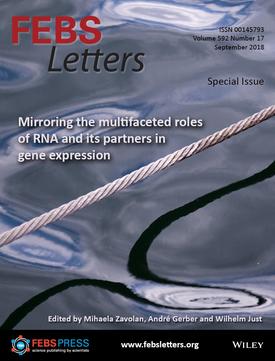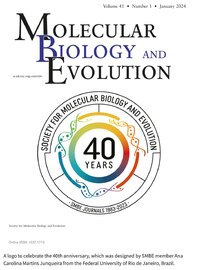BioMed Central (BMC) is a United Kingdom-based, for-profit scientific open access publisher that produces over 250 scientific journals. All its journals are published online only. BioMed Central describes itself as the first and largest open access science publisher. It was founded in 2000 and has been owned by Springer, now Springer Nature, since 2008.

Nature Chemical Biology is a monthly peer-reviewed scientific journal published by Nature Portfolio. It was established in June 2005 by founding Chief Editor Terry L. Sheppard as part of Nature Publishing Group. Sheppard was the Chief Editor of the journal 2004–2022. The current editor-in-chief is Russell Johnson.

Journal of Experimental Medicine is a monthly peer-reviewed medical journal published by Rockefeller University Press that publishes research papers and commentaries on the physiological, pathological, and molecular mechanisms that encompass the host response to disease. The journal prioritizes studies on intact organisms and has made a commitment to publishing studies on human subjects. Topics covered include immunology, inflammation, infectious disease, hematopoiesis, cancer, stem cells and vascular biology. The journal has no single editor-in-chief, but thirteen academic editors.

Nature Medicine is a monthly peer-reviewed medical journal published by Nature Portfolio covering all aspects of medicine. It was established in 1995. The journal seeks to publish research papers that "demonstrate novel insight into disease processes, with direct evidence of the physiological relevance of the results". As with other Nature journals, there is no external editorial board, with editorial decisions being made by an in-house team, although peer review by external expert referees forms a part of the review process. The editor-in-chief is João Monteiro.

The Annual Review of Ecology, Evolution, and Systematics is an annual scientific journal published by Annual Reviews. The journal was established in 1970 as the Annual Review of Ecology and Systematics and changed its name beginning in 2003. It publishes invited review articles on topics considered to be timely and important in the fields of ecology, evolutionary biology, and systematics. As of 2023, Journal Citation Reports gave the journal a 2022 impact factor of 11.8, ranking it third of 169 journals in the "Ecology" category and third of 52 journals in "Evolutionary Biology". As of 2023, it is being published as open access, under the Subscribe to Open model.
The Journal of Endocrinology is a monthly peer-reviewed scientific journal that publishes original research articles, reviews, and commentaries. Its focus is on endocrine physiology and metabolism, including hormone secretion, hormone action, and biological effects. The journal considers basic and translational studies at the organ and whole organism level.

Cladistics is a bimonthly peer-reviewed scientific journal which has published research in cladistics since 1985. It is published by Wiley-Blackwell on behalf of the Willi Hennig Society. Cladistics publishes papers relevant to evolution, systematics, and integrative biology. Papers of both a conceptual or philosophical nature, discussions of methodology, empirical studies on taxonomic groups from animals to bacteria, and applications of systematics in disciplines such as genomics, paleontology and biomedical epidemiology are accepted. Five types of paper appear in the journal: reviews, regular papers, forum papers, letters to the editor, and book reviews. According to the Journal Citation Reports, the journal has a 2020 impact factor of 5.254, ranking it 10th out of 50 journals in the category "Evolutionary Biology". Its editor-in-chief is Rudolf Meier, who replaced Dennis Stevenson in 2019.

The Annual Review of Cell and Developmental Biology is a peer-reviewed scientific journal published by Annual Reviews since 1985. It releases an annual volume of review articles relevant to the fields of cell biology and developmental biology. Its editor has been Ruth Lehmann since 2018; as of 2023, its impact factor is 11.3. As of 2023, Annual Review of Cell and Developmental Biology is being published as open access, under the Subscribe to Open model.

The Annual Review of Genetics is an annual peer-reviewed scientific review journal published by Annual Reviews. It was established in 1967 and covers all topics related to the genetics of viruses, bacteria, fungi, plants, and animals, including humans. The current editor is Tatjana Piotrowski. As of 2023, Journal Citation Reports gives the journal a 2022 impact factor of 11.1, ranking it eighth out of 171 journals in the category "Genetics & Heredity". As of 2023, it is being published as open access, under the Subscribe to Open model.

Nature Structural & Molecular Biology is a monthly peer-reviewed scientific journal publishing research articles, reviews, news, and commentaries in structural and molecular biology, with an emphasis on papers that further a "functional and mechanistic understanding of how molecular components in a biological process work together".

FEBS Letters is a not-for-profit peer-reviewed scientific journal published on behalf of the Federation of European Biochemical Societies (FEBS) by Wiley. It covers all aspects of molecular biosciences, including molecular biology and biochemistry. The aim of the journal is to publish primary research in the form of Research Articles, Research Letters, Communications and Hypotheses, as well as secondary research in the form of Review articles. The journal also publishes a News and Views column called "The Scientists' Forum". The editorial office of FEBS Letters is based in Heidelberg, Germany. The journal income is reinvested in science.

The American Journal of Primatology is a monthly peer-reviewed scientific journal and the official journal of the American Society of Primatologists. It was established in 1981 and covers all areas of primatology, including the behavioral ecology, conservation biology, evolutionary biology, life history, demography, paleontology, physiology, endocrinology, genetics, molecular genetics, and psychobiology of non-human primates. Besides its regular issues, the journal publishes a yearly supplementary issue detailing the program of the society's annual meetings. The editor-in-chief is Karen Bales. The types of papers published are: original research papers, review articles, book reviews, commentaries, and plenary addresses.

Human Reproduction is a peer-reviewed scientific journal covering all aspects of human reproduction, including reproductive physiology and pathology, endocrinology, andrology, gonad function, gametogenesis, fertilization, embryo development, implantation, pregnancy, genetics, preimplantation genetic diagnosis, oncology, infectious disease, surgery, contraception, infertility treatment, psychology, ethics, and social issues. It is an official journal of the European Society of Human Reproduction and Embryology. It was established in 1986 with Robert Edwards as founding editor-in-chief.
Frontiers Media SA is a publisher of peer-reviewed, open access, scientific journals currently active in science, technology, and medicine. It was founded in 2007 by Kamila and Henry Markram. Frontiers is based in Lausanne, Switzerland, with offices in the United Kingdom, Spain, and China. In 2022, Frontiers employed more than 1,400 people, across 14 countries. All Frontiers journals are published under a Creative Commons Attribution License.

eLife is a not-for-profit, peer-reviewed, open access, science publisher for the biomedical and life sciences. It was established at the end of 2012 by the Howard Hughes Medical Institute, Max Planck Society, and Wellcome Trust, following a workshop held in 2010 at the Janelia Farm Research Campus. Together, these organizations provided the initial funding to support the business and publishing operations. In 2016, the organizations committed US$26 million to continue publication of the journal.
Peerage of Science was a scientific peer review service aimed at improving "the current peer review system and make the peer review process more scientific, fair and transparent". The company was founded in 2011 by the scientists Janne Kotiaho, Mikko Mönkkönen, and Janne-Tuomas Seppänen in Jyväskylä, Finland. Initially it focused on the areas of "ecology, evolutionary biology and conservation biology", but within 2 years it expanded to other areas of science.
The Journal of Molecular Endocrinology is a peer-reviewed scientific journal published eight times per year. Its focus is on molecular and cellular mechanisms in endocrinology, including gene regulation, cell biology, signalling, mutations, and transgenesis.
The Society for Molecular Biology and Evolution (SMBE) is a scientific and academic organization founded in 1982 to support academic research in the field of molecular evolution. The society hosts an annual meeting, typically in June or July. It also supports satellite meetings throughout the year. The Society's first president was evolutionary biologist Walter M. Fitch. The current President is Stephen Wright.

Genome Biology and Evolution is a monthly peer-reviewed open access scientific journal published by Oxford University Press on behalf of the Society for Molecular Biology and Evolution. It covers research on the interface between evolutionary biology and genomics. According to the Journal Citation Reports, the journal has a 2022 impact factor of 3.3.

The Socio-Economic Review (SER) is a peer-reviewed academic journal, published quarterly by Oxford Journals for the Society for the Advancement of Socio-Economics (SASE). It is a journal dedicated to the analytical, political and moral questions arising at the intersection between economy and society. Next to double-blind reviewed articles, SER publishes review symposia, discussion forums, presidential addresses as well as editorials.














